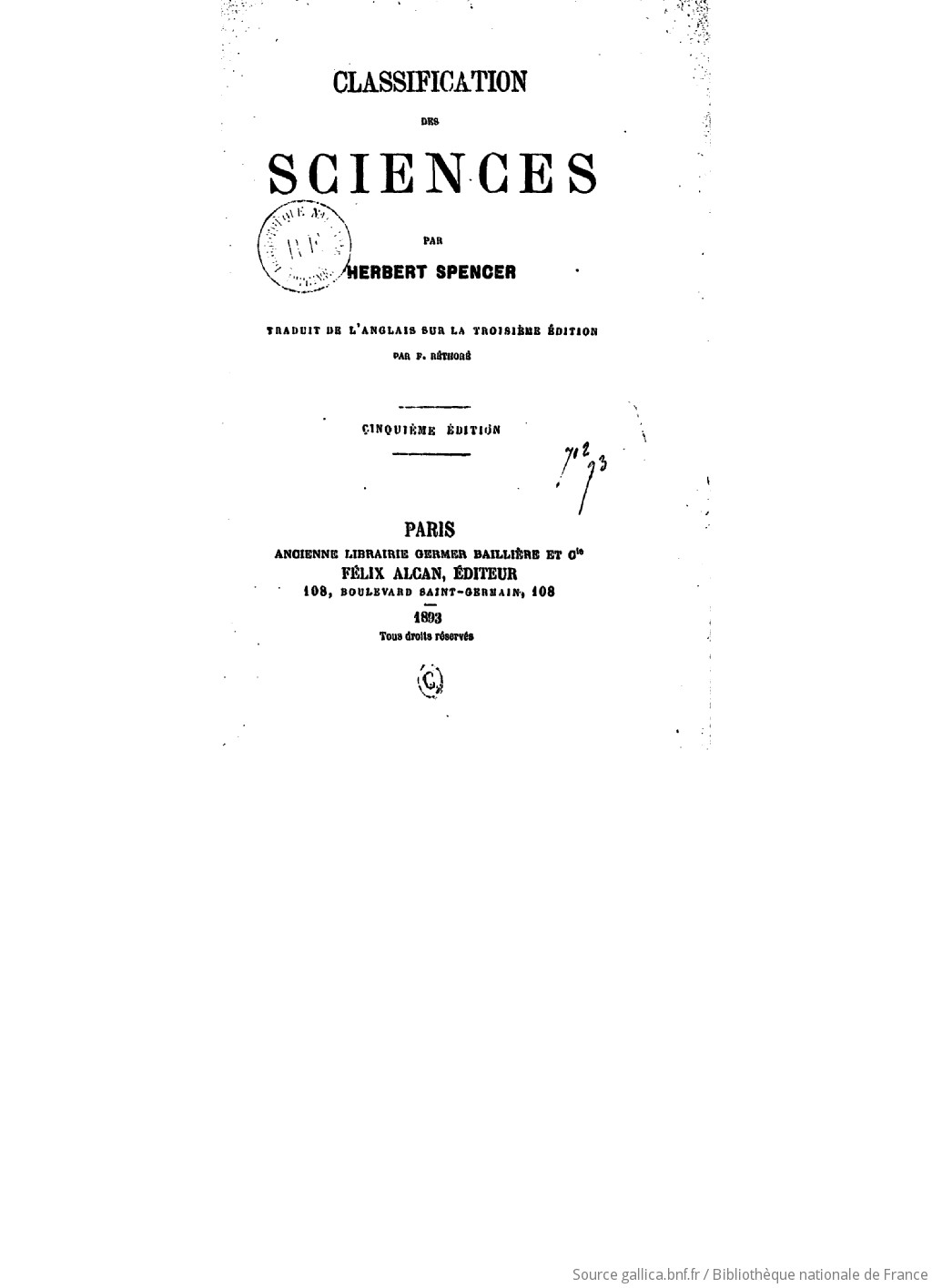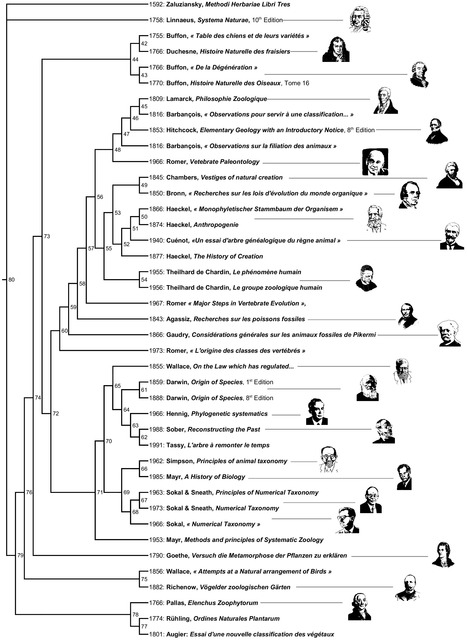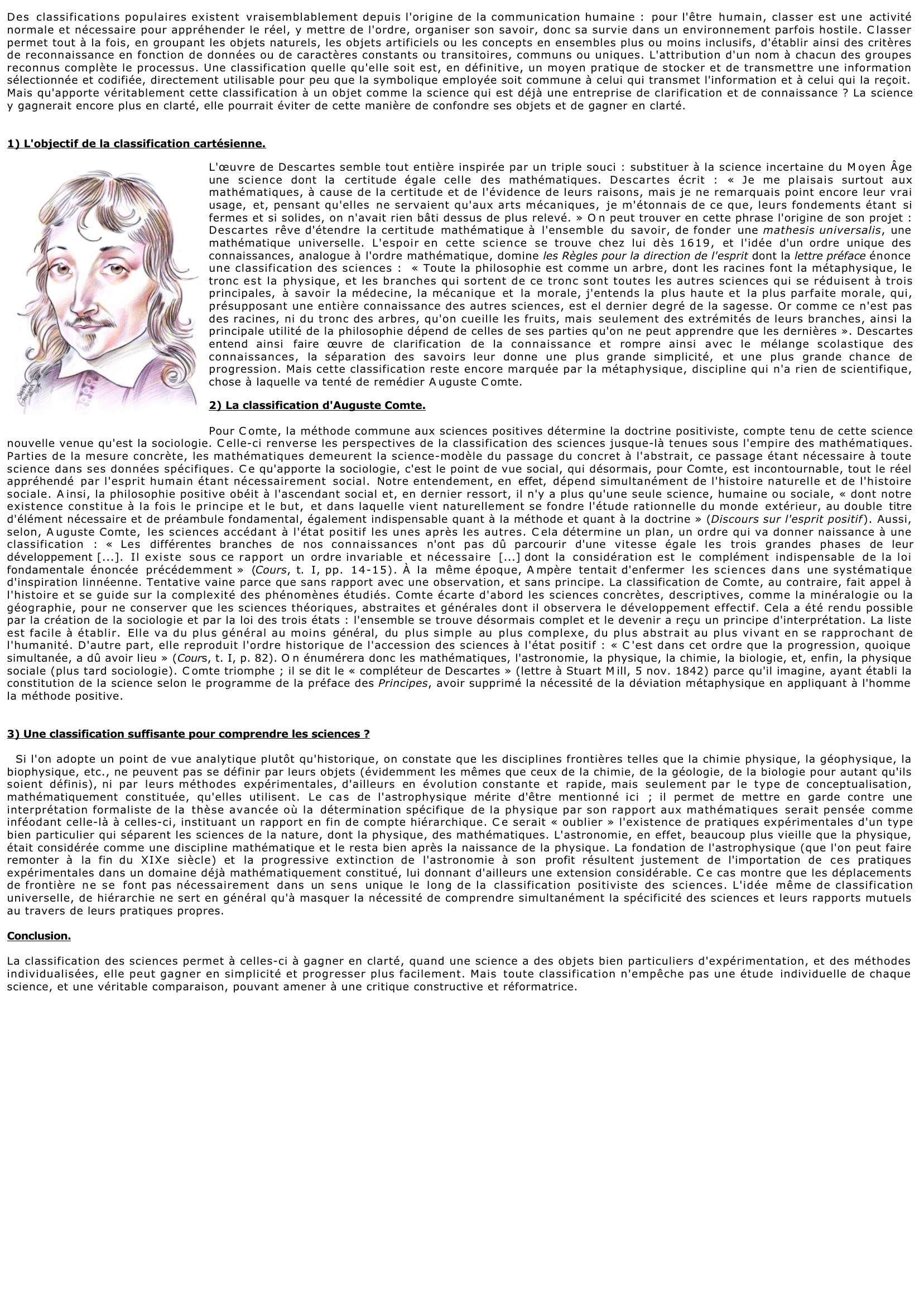Classification of the Sciences is the organization of different fields of study into categories based on their subject matter, methods, and goals. It is a way of understanding the relationships between different fields and how they contribute to the overall understanding of the world around us.
There are many different ways to classify the sciences, and different approaches may emphasize different aspects of the discipline. One common way to classify the sciences is based on the level of abstraction, with some sciences focusing on fundamental concepts and theories, and others focusing on practical applications.
For example, theoretical sciences such as mathematics and physics focus on understanding abstract concepts and principles that underlie the physical world. These disciplines use logical reasoning and mathematical models to describe and explain natural phenomena, and their findings are often used to develop new technologies and innovations.
On the other hand, applied sciences such as engineering and medicine focus on the practical application of scientific principles to solve real-world problems. These disciplines often involve the development of new technologies or the application of existing technologies to address specific issues or challenges.
Another way to classify the sciences is based on the subject matter being studied. Natural sciences such as biology, chemistry, and geology study the natural world and the physical laws that govern it. These disciplines use empirical evidence and observation to understand the structure and behavior of the natural world.
Social sciences such as psychology, sociology, and anthropology study human behavior and the social and cultural factors that shape it. These disciplines often use qualitative and quantitative methods to gather and analyze data on human behavior and social phenomena.
Humanities, such as literature, history, and philosophy, focus on the study of human culture and society. These disciplines use a variety of methods, including interpretation and analysis of texts and other cultural artifacts, to understand the experiences and values of different cultures and societies.
Overall, the classification of the sciences helps to clarify the relationships between different fields of study and the methods and goals of each discipline. It is an important tool for understanding the role that each discipline plays in advancing our understanding of the world around us.
Auguste Comte

We can observe a lightning bolt in the sky and look for why or how it occurs. Inorganic elements, atomic weights, compounds, periodicity, etc. This work was reproduced from the original artifact, and remains as true to the original work as possible. For instance, Sociology is dependent on Biology, Chemistry, Physics, Astronomy and Mathematics. This list can be remembered by using the mnemonic device: Did King Phillip Come Over For Great Spaghetti? Phenomenology or or Phaneroscopy. He believed that some scientific disciplines are complex while others are simple.
SJR : Scientific Journal Rankings

Ethnology of Social Developments, customs, laws, religion, and tradition. Within the United States, you may freely copy and distribute this work, as no entity individual or corporate has a copyright on the body of the work. For instance, the production and working of hormones, and enzymes in the human body involves certain chemical processes. Kehler, printed in The New Elements of Mathematics v. For instance, Biology is dependent on Chemistry because the biological processes involve chemical processes. In the order of reaching the scientific stage, Mathematics was the first discipline that entered the scientific stage; and Sociology was the last discipline that entered the scientific stage.
Classification of the sciences (Peirce)

Peirce in 1911: Logic. The scientific study of hypotheses which it first frames and then traces to their consequences. From now on, there are different kinds of continua, which have different properties. La classification proposée par Auguste Comte distingue d'abord des sciences concrètes ou appliquées, telles que la cosmographie, la géologie, la météorologie, l'histoire naturelle, l'économie politique, l'anthropologie, etc. Note: By "continuum" Peirce meant, until 1908, II. Quel est ce domaine? Bacon a dit d'une bonne classification qu'elle est : « Globus orbis intellectualis » De dignitate et augmentis scientarum.
Classification Des Sciences

Mathematics Unlike Sociology which is dependent on all other sciences, Comte viewed Mathematics as the most independent science which does not depend on any other science. D'autre part, les différentes sciences aboutissent à un certain nombre de vérités générales où elles se résument et qui sont comme leur dernier mot sur la nature. It may interest you Branches of chemistry. Also, I want to advise that the classification system is highly vast and should be researched to understand its complexities. En effet, les principales questions dont elle traite concernent : 1° Soit la nature de la science, ses conditions, ses limites et ses différentes espèces; 2° Soit les méthodes des différentes sciences; 3° Soit les principes des sciences, c'est-à-dire les vérités universelles sur lesquelles elles reposent, les notions fondamentales qu'elles impliquent, les hypothèses nécessaires à leur-constitution; 4° Soit enfin les résultats généraux des sciences qu'il s'agit de concilier entre eux et de coordonner en système. This is because human behaviour is not influenced only by social factors, but is also influenced by genetic composition, hormonal fluctuations, general health status and other biological factors. The formal sciences are rational, systematic and verifiable, but not objective because their search is not the real object.






